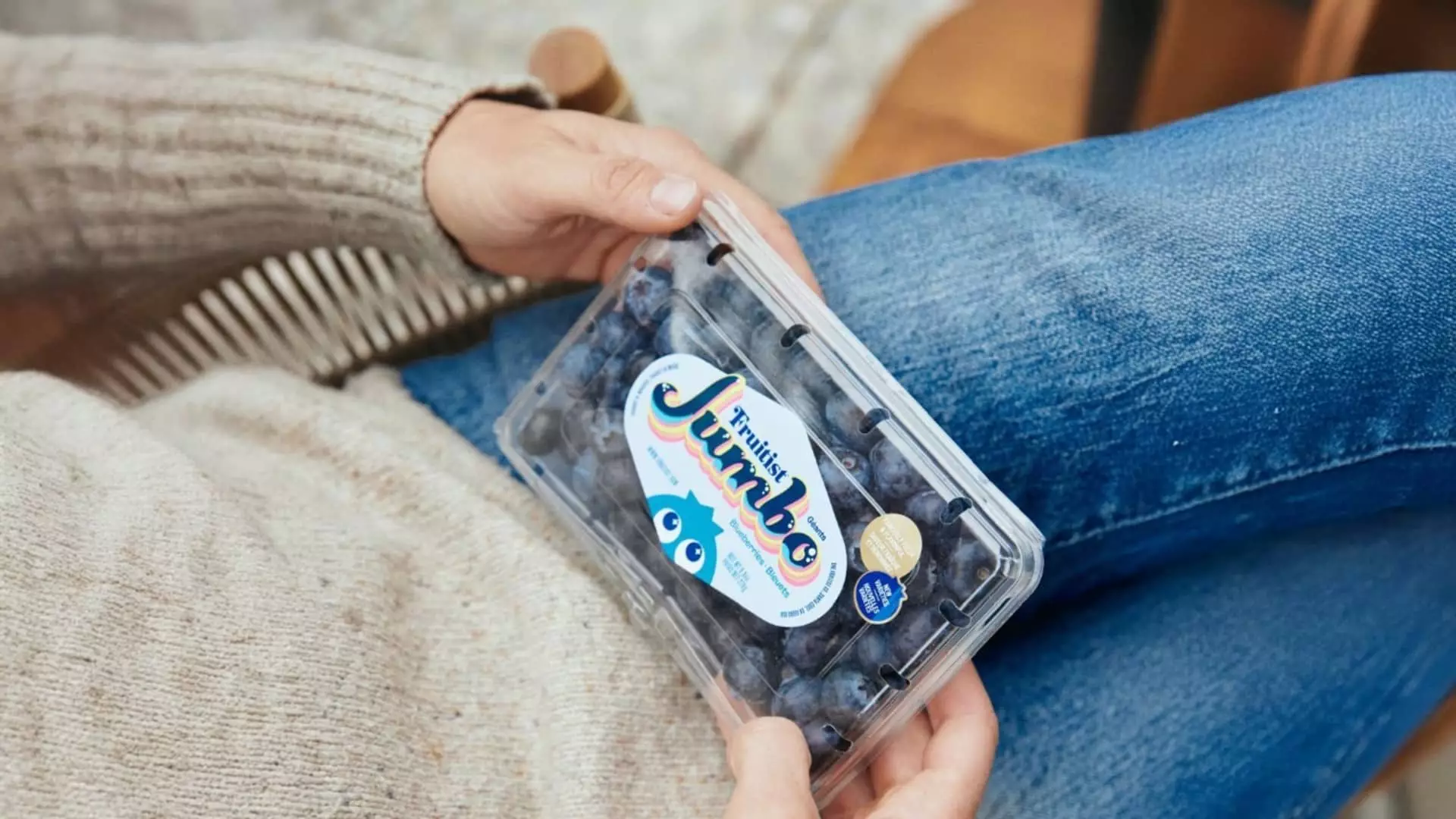In an age where consumer choices are gravitating toward healthier alternatives, Fruitist stands out as a beacon of innovation. The company, once known as Agrovision, has experienced an astonishing surge in sales, surpassing $400 million annually. This remarkable growth can largely be attributed to its signature product: jumbo blueberries, which have effectively redefined what it means to snack on fruit. As health trends evolve and traditional junk food faces scrutiny, the rise of snackable, nutritious options like Fruitist’s berries highlights a significant shift in the food landscape.
The Allure of Jumbo Blueberries
What sets Fruitist apart from its competitors? The answer lies in the size and quality of its blueberries. These non-genetically modified fruits are not only larger—often 2 to 3 times the size of typical blueberries—but they also have a remarkable shelf life that appeals to busy consumers who prioritize convenience. The emphasis on consistent quality solves what the CEO, Steve Magami, refers to as “berry roulette,” a game of chance where consumers are often left disappointed by inferior or inconsistent grocery store offerings. By addressing this common frustration, Fruitist has positioned itself as the go-to option for health-conscious snackers.
According to Magami, the company has deliberately chosen to streamline its supply chain. The era of tedious and fragmented distribution models that hinder quality and freshness is seemingly fading. Instead of relying on a traditional model where products change hands multiple times, Fruitist produces its fruit in diverse microclimates—maintaining control from farm to consumer. This ensures that what ends up on the grocery shelf is as fresh and appealing as possible.
Venture Capital and Future Aspirations
With over $600 million raised in venture capital, the company is not only well-funded but also well-positioned for future expansion. High-profile investors, including the family office of Ray Dalio, have lent their support, recognizing the potential impact that the brand could have on the health food sector. Despite indications of a looming economic slowdown due to global trade tensions, the company is eyeing an initial public offering (IPO) within this year, capitalizing on its growing recognition and market potential.
Nevertheless, going public carries risks, especially considering the turbulent atmosphere surrounding recent IPOs. While established names like Dole Foods have demonstrated growth, other companies have faced serious hurdles due to market volatility. Yet, Fruitist remains optimistic, banking on its consumer-centric approach and robust growth, despite the uncertainties tied to external economic factors.
Strategies for Sustainability and Growth
The Fruitist model emphasizes not just volume but also sustainability. By investing heavily in infrastructure—such as on-site cold storage—the company mitigates one of the significant challenges in the berry industry: spoilage. Having a cold storage facility allows their products to maintain peak freshness, which is crucial for perishable goods. Machine learning technology adds another layer of sophistication, helping determine the optimal harvest times for fruit to ensure top quality.
As the company looks to expand its offerings into cherries, there’s a strong likelihood that consumers will see even more innovative products on store shelves. The strategic cultivation of cherries on its farms in Chile will not only diversify Fruitist’s product lineup but could potentially contribute to its sustained rise as a household name.
The Changing Landscape of Consumer Preferences
Fruitist’s journey exemplifies the transformative shift in consumer preferences, especially as unhealthy snacks lose their appeal. The revival of healthier snacking options aligns perfectly with broader societal efforts towards wellness, encapsulated in initiatives like “Make America Healthy Again” proposed by Health Secretary Robert F. Kennedy Jr. The advent of GLP-1 medications has also transformed consumer attitudes, making nutritious snacks more appealing than ever.
A fascinating facet of this shift is that larger corporate entities are increasingly investing in healthier product lines, moving away from traditional junk food categories that dominated the market for decades. This evolution places Fruitist in an advantageous position; as a pioneer in the health-focused snacking niche, the company stands to gain immensely from this trend.
In sum, Fruitist’s ascent is not merely about blueberries—it’s about a broader cultural shift toward healthier eating habits. As allergens, preservatives, and unhealthy additives come under scrutiny, brands like Fruitist are positioned at the forefront of a much-needed change in dietary practices. The future of snacking is here, and it’s vibrant, flavorful, and, above all, healthy.

